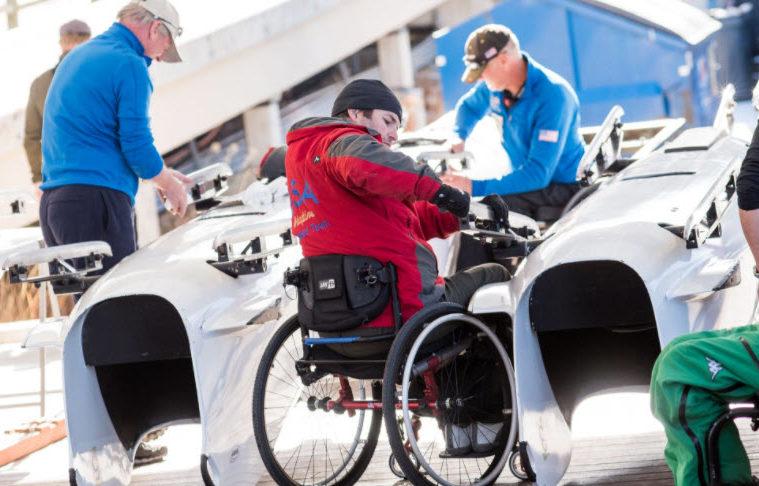 At 16-years-old, Josh Merryman was an extreme sport competitor who liked to fly through the air fast and high on a motorcycle. His love of extreme sports has continued, and today Josh is a member of the US Paralympic Team competing in Bobsled & Skeleton events. A resident of Mount Pleasant, SC, Josh shares his journey with SCI below.
At 16-years-old, Josh Merryman was an extreme sport competitor who liked to fly through the air fast and high on a motorcycle. His love of extreme sports has continued, and today Josh is a member of the US Paralympic Team competing in Bobsled & Skeleton events. A resident of Mount Pleasant, SC, Josh shares his journey with SCI below.
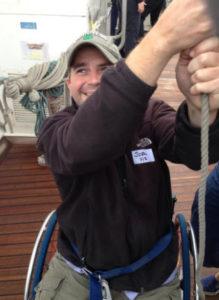 In 1995, I lived in Oregon, and I raced motocross. I was on a new track, running the lines that I planned to follow in competition, when I got a little too competitive. I was racing down a straightaway and coming up on a triple jump.
In 1995, I lived in Oregon, and I raced motocross. I was on a new track, running the lines that I planned to follow in competition, when I got a little too competitive. I was racing down a straightaway and coming up on a triple jump.
I was going too fast when I came off the first jump, and I landed right on top of the second jump. I flew over the handlebars of my motorcycle and landed on my head. Luckily, I didn’t break my neck, but I had a rather severe head injury.
I tore up the main nerve bundle in my shoulder called the brachial plexus (sends signals from your spine to your shoulder, arm and spinal cord), and I broke T6 and T7 in my spinal cord. I was conscious, but I didn’t know what happened next.

Josh Merryman has enjoyed life at a high velocity since he was a kid.
Josh DESCRIBES High School After His Accident
I was taken to the hospital, because of the head injury. Since I was heavily sedated, I didn’t remember very much of anything that happened for the next 2 weeks. I had a neurosurgeon who didn’t have a very good bedside manner, but instead what I called a bedpan manner. In a very matter of fact manner, she told me, “You’ll never walk again.”
I truly believe she could have delivered that message in a better fashion.
When I was first cognizant after my accident, and after I was informed of what had happened to me, I was also told I’d been in a coma for a week.
The first thing I thought about was how fortunate I had been to survive and come out of a coma. I’m sure I was probably upset when I was told I never would walk again, but that time and that information seemed to have blurred from my memory.
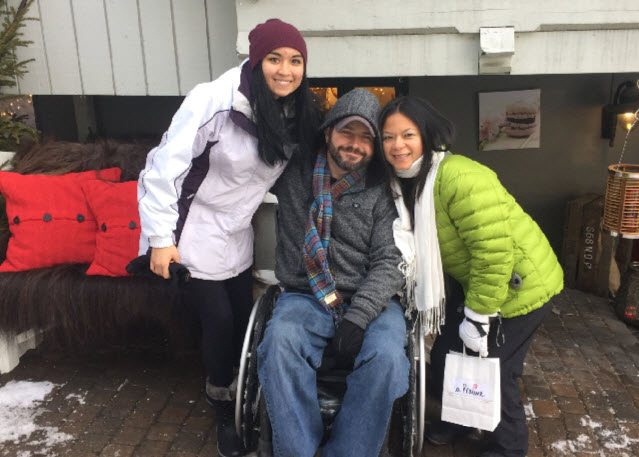
Josh credits his friends and family with helping him adjust well to life after SCI.
I really didn’t think that much about being paralyzed, until I got home from the hospital. My family had modified our home to make it more accessible for me.
About a year passed before I could adjust to this new world where I lived. I was fortunate that I didn’t have any major depression issues during that time, because I had a very strong support group of friends and family. They seemed to always keep me busy.
When I got home, I still had rehab, and I started back to high school. I didn’t have a lot of down time, and I believe that was a really good thing for me. Before my injury I was an athlete. I played nose guard and end in football; I wrestled; I rode motocross; I was a downhill skier; and I rode my motorcycle often off-road. I was extremely active, fairly muscular and strong. I weighed about 175 pounds, and I was 5’11” inches tall.
The year after my injury was probably the hardest year for me.
I broke my back in August, and I was in the hospital for 8 weeks. But while I was in the hospital, and when I was going through rehab, I had a tutor. I went back to school shortly after rehab ended.
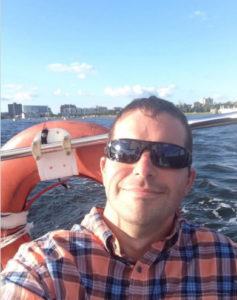
Josh Merryman has a bright career that centers on helping people who also use wheelchairs.
Of course, being back in high school and in a wheelchair was different from my life before, but my friends were very welcoming. They were always by my side. When I was in the hospital, they’d come visit me every day and sometimes at night. They made my adjusting to my new life much better and easier than it would have been without them.
Josh Pursued College and a Career in Helping Others
I always had planned to go to college. Although I wasn’t sure exactly what I wanted to grow up to be, I felt sure I would go to business school. I graduated from high school in 1999 and then enrolled at the University of Oregon and majored in business.
One of the advantages of going to the University of Oregon was that the campus was pretty hilly. Those hills helped me build up my physical strength, besides the exercising I already was doing at physical therapy.
Eugene, Oregon is very accepting of all types of people. That city was a great place to learn to adjust to my new body.
After college, I worked for nearly four years in management for Wells Fargo. Next I moved to Countrywide, another mortgage company. I worked there for about six years and learned the mortgage business. Then I moved into the medical field.
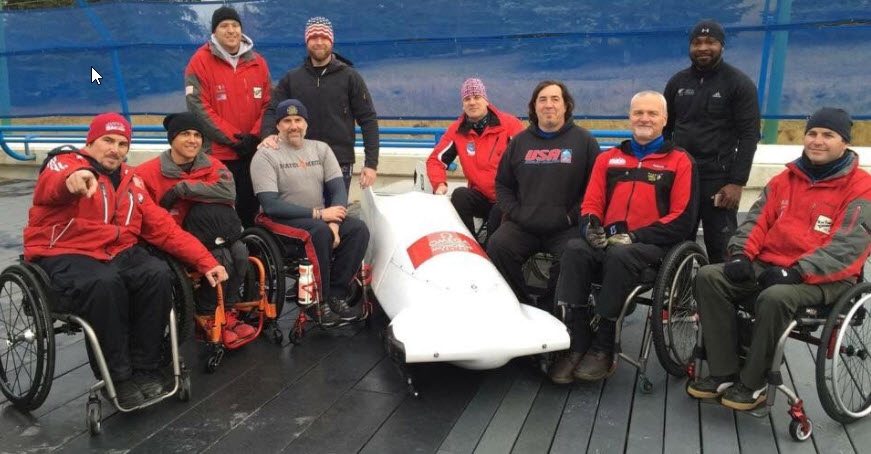
Josh enjoys the fellowship and competitive spirit he finds among his Paralympic teammates.
Josh Merryman Loves Providing Medical Assistance to People Like Him
One of the reasons I like being in medical sales is that it gives me an opportunity to do some peer mentoring. I primarily work with Roper Rehabilitation Hospital in Charleston, South Carolina, where I live now.
I try to tell newly injured people in wheelchairs that the first year after their accidents is the most difficult and to be prepared for that. I tell them to remember that because they’re injured doesn’t mean that their worlds have to change that drastically. They’re still the persons they were before the injury.
If you’re an ambitious person, there is no reason to think that being in a wheelchair will hold you back from doing anything. You can have whatever you want in life.
You just have to work for it – whether you’re in a wheelchair or not. I’ve never thought that my life should be any different just because I’m using a wheelchair.
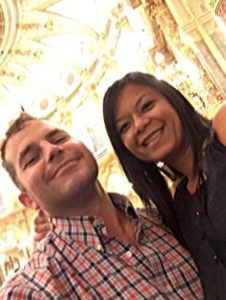 Sometimes I get questions from people newly in wheelchairs about dating and marriage. I tell them to always remember that everyone has a disability, whether you can see that disability or not. So, don’t make being in a wheelchair more of an issue than it needs to be.
Sometimes I get questions from people newly in wheelchairs about dating and marriage. I tell them to always remember that everyone has a disability, whether you can see that disability or not. So, don’t make being in a wheelchair more of an issue than it needs to be.
Ever since I broke my back, I’ve been really fortunate to have a normal dating life, and I got married in October, 2016. I met my wife, Christina, through some friends here in town. We actually met at a baby shower for some mutual friends, and we just started talking. I invited her out, and the rest is history. Christina is an inside sales account manager for an industrial supplier.
In my medical position, I work for a distributor of catheters. We sell several brands of catheters.
So, I’ve used different brands of catheters, but I believe that Cure Medical is manufacturing some really good products, especially their new hydrophilic and ready-to-use catheters.
I personally use and prefer the male hydrophilic straight catheter made by Cure Medical.
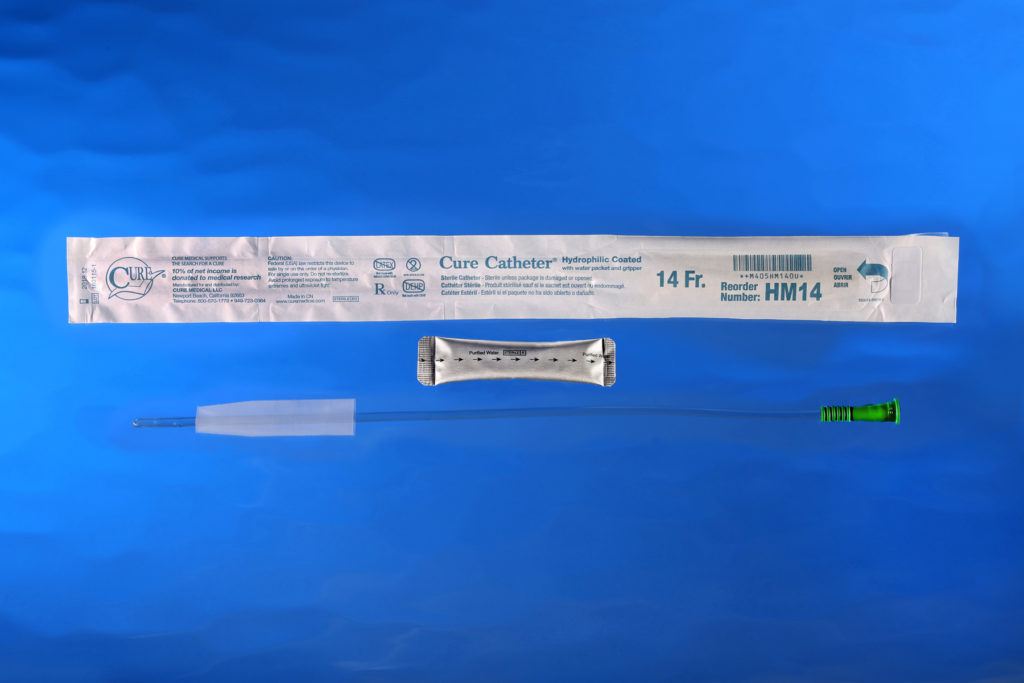
The Hydrophilic Cure Catheter® for men is available with a straight or coude tip, and is not made with DEHP, BPA or Natural Rubber Latex.
To request free samples of the Hydrophilic Cure Catheter® or any Cure Medical® catheter, contact your local distributor of quality healthcare products, or click here.
One of the things I try to explain to newly injured patients is that using a catheter may feel awkward and strange when you first start using them. But in a very short time, the use of a catheter doesn’t feel awkward or different.
Just be patient, and above all other things be compliant (do what your doctor tells you to do when he tells you to do it).
Your physicians will tell you how important staying hydrated is, and they’re telling you that to help you be the best you can be. If you need to use the catheter every 4 hours, don’t go past the 4-hour time period that’s suggested.
I had to learn that truth the hard way. However, luckily, I learned these lessons at a very young age. When you’re a teenager, you think you know everything in the world there is to know, but one or two urinary infections will drive home the point that you need to use your catheters when the doctor tells you to do so.
I’ve become very proactive about taking care of my body and doing what the doctors tell me to do, so, I feel good, and I’m rarely if ever in a world of hurt.
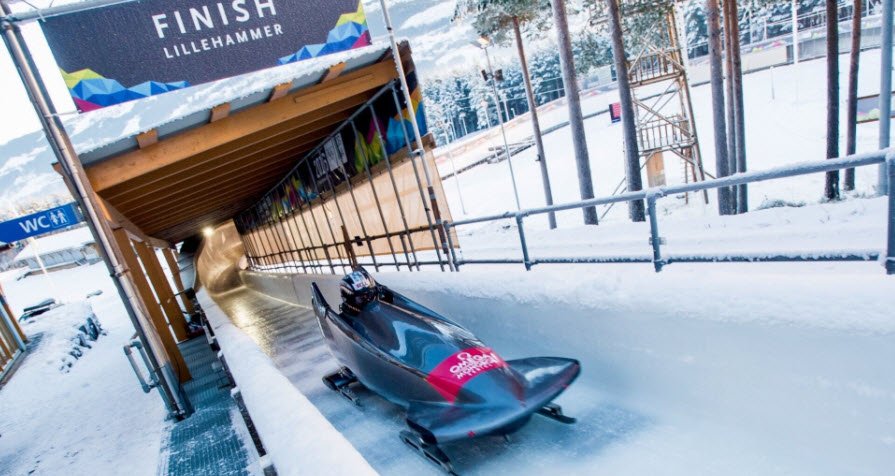
Josh knows he can’t win on the bobsled course if he’s not taking care of his health, and that’s why he’s encouraging you to know your options too!
Josh Continues His Love of Extreme Sports with Para-Bobsledding
In 2014, I went to Austria to learn how to bobsled and compete among other para-athletes. I’ve also trained and competed at the Olympic track in Calgary, Canada. This sport is a pure adrenaline rush.
With its high speed descent down a frozen twisting ice chute, the sport of Bobsleigh and Skeleton tests an athlete’s strength, finesse and courage. The International Bobsleigh and Skeleton Federation offers this same challenge to elite athletes who have a disability through its Para-bobsleigh and Para-skeleton sport disciplines.
Video: Learn more about Para-Bobsleigh
My competitive record includes:
- 2015-2016 Para World Cup – 8th place in Calgary (11/15)
- 2014-2015 Para World Cup – 15th place in Igls (1/15)
I’m proud to be part of such an awesome sport and to have the opportunity to represent U.S.A. Our goal is to eventually get the Olympic commitee to approve having Para-bobsled included as a formal Paralympic sport event in the 2018 Olympics.
Josh Shares His Advice for Lifelong Success After SCI
I’m on the board of the South Carolina Spinal Cord Injury Association. I’ve learned more about the sports now available for people in wheelchairs, and new wheelchair sports are coming online every year. I think that’s a great development, because I’m very sports-minded. I’ve realized too that sports help me stay healthy, have a good mental attitude and work hard.
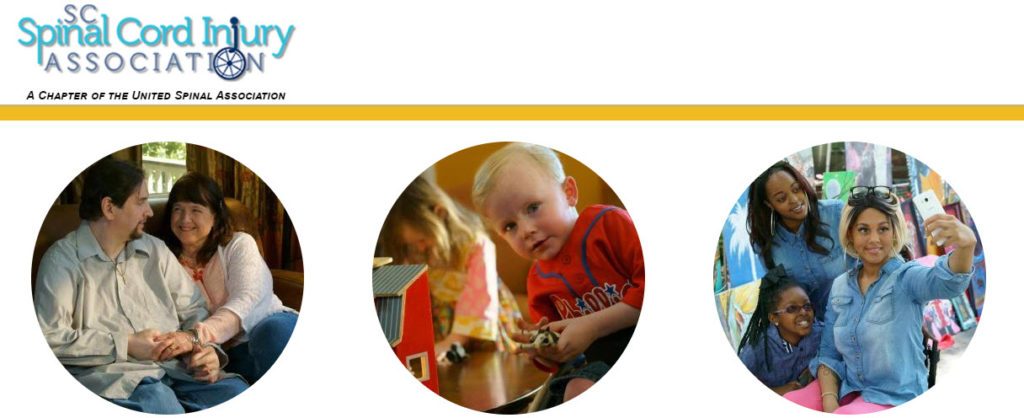
I’ve also learned that if you’re a newly-injured adult, starting back to work as soon as possible is so important. There are numbers of health benefits, both physical and mental, related to getting back to work.
Becoming gainfully employed and having money coming in have allowed me to do many things I always have wanted to do. However, I can’t do these things, if I don’t work.
I encourage people in wheelchairs to live as normal lives as they can, and to live the lives they’ve always dreamed of living. When you’re working, you don’t have time to worry about things you can’t do, since you have so much in front of you that you need to do.
I’ve learned for example that my mortgage company can care less if I’m in a wheelchair or not. They expect that mortgage payment every month.
That’s how I think the world must work. I don’t think I need to be treated any differently because I’m in a wheelchair from anyone else who isn’t in a wheelchair.
If I want something, I’m the person who has to go after it, if I’m going to get it.
Don’t let your disability be any more of a challenge than it needs to be. Realize that we’re fortunate to live in a country that’s very accessible. This is the land of the free, and there’s a lot of opportunity out there for everyone. So, don’t let your disability hold you back.
Enjoy Our Free Resources & Articles
 CURE NATION is designed with you in mind, to offer assistance and education when you need it through a personal support program.
CURE NATION is designed with you in mind, to offer assistance and education when you need it through a personal support program.
All of the information you find below and on our related social media pages is meant to guide you to places, topics and, resources that enhance your life, while also connecting you with a growing group of friends.
- Sign up for our free, CURE NATION e-newsletter to have our latest stories delivered directly to you, once a month.
- Get our FREE LIFESTYLE + TRAVEL BOOKS here.
- Have an idea you’d like to share? Let us know.
- Be sure to take a minute to meet our Cure Advocates too.
You may also enjoy:

